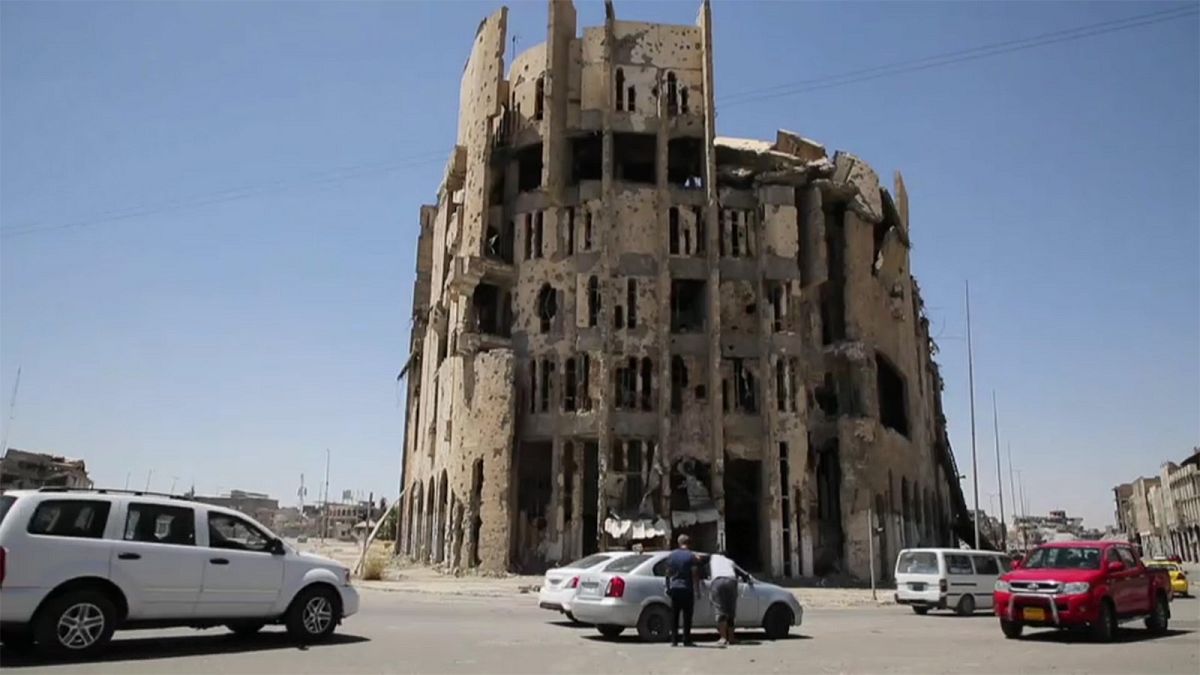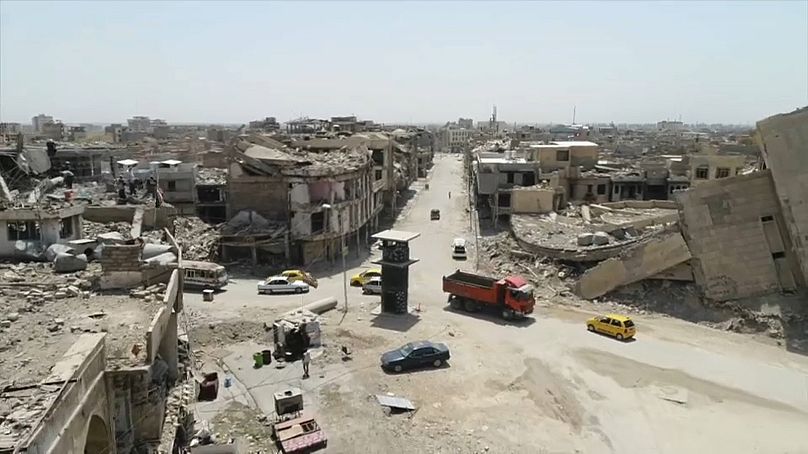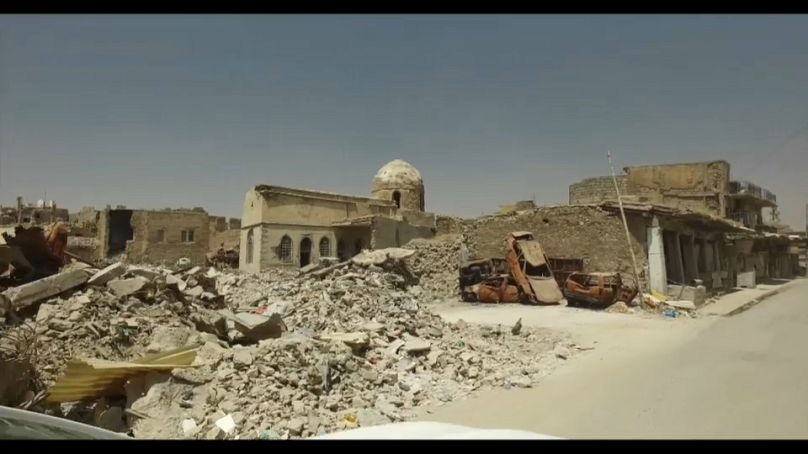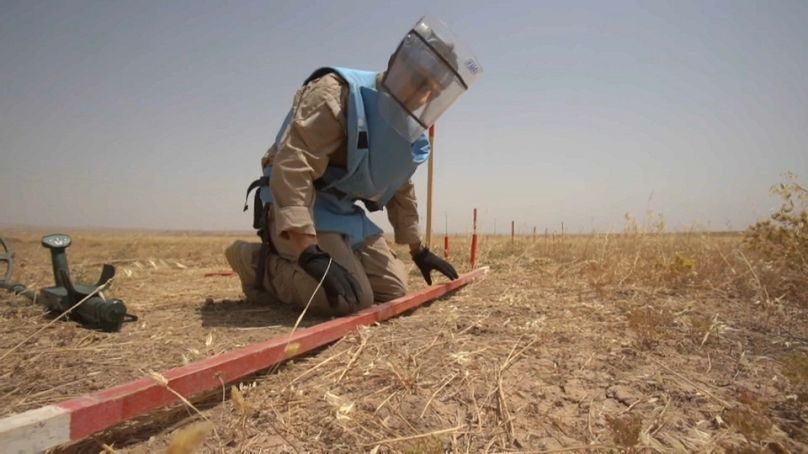One year after the fall of ISIS Mosul is still a city in ruins, where an estimated 8 million tons of remnants of war partially buried under the debris."
Mosul was retaken the 10th of July 2017. Today the second city of Iraq is facing the consequences of three years of ISIS' occupation and of a nine-month battle that claimed between 9,000 and 11,000 lives. Many of those bodies are still under the rubble. Thousands of people are still living in camps.
Euronews' Monica Pinna says: "One year after the fall of ISIS Mosul is still a city in ruins, where life restarts little by little under the threat of improvised explosive devices, booby traps and an estimated 8 million tons of remnants of war partially buried under the debris."
More than 800,000 residents have returned to the city despite the devastation of West Mosul. Unexploded munitions are making of the city a ticking time bomb. According to the UN, clearance could take a decade.
Mohamad, 28 years old, has gambled on a fresh start with his ice cream business.
"We came back eight months ago. Life is good now. We are working, but the economy is stagnant. We would need electricity, water. The government should build houses and schools."
The conflict has taken a heavy toll on civilians. Survivors often carry the marks of battle. 54,000 people were injured since ISIS took control of the city in 2014. Adil and his 11-year old daughter Nada have both lost a leg in an attack in which another two of his children died.
Adil says: "I was about to open the door with my children, when an explosion hit us. I lost consciousness. My daughter died at the hospital and my 3 year old son died on the way.”
Rehabilitation of war survivors and clearance of improvised explosive devices are among the priorities of the EU Humanitarian Aid Department in Iraq.
The NGO Norwegian People's Aid conducts surveys and clearance in a vast area East of Mosul. Villages like Tajala and Kabarli are part of it. They were on the frontline between ISIS, Peshmergas and Iraqi forces in the desertic Hamdaniya District.
The villages were taken nine months before Mosul. There is little infrastructure here, but heavy Improvised explosive devices's contamination. You didn't even need NPA crew's trained eye to spot this device.
The Euronews team stopped in an area with clear evidence of an explosion and rudimentary ways to mark it. Sheep are at risk as much as people here.
Christian Ramsden, from Norwegian People's Aid, said: "What we have here in Tarjala village is very typical of what we find in Northern Iraq post the conflict with ISIS, we have a defensive area where we have live still in place IEDs from the time of the conflict.
"We can see one pressure pipe visible, there might be more and five projectile rounds laid in a linear fashion that gives early warning and protection to ISIS forces."
NPA, financed by the EU Humanitarian Aid department, conducts surveys on "suspected" and "confirmed hazardous areas" and then proceeds with the clearance. Nearly 12,000 square metres have been cleared around the village of Badana.
Ramsden added: "More than 700,000 IEDs have been located to date and hazardous areas'sizes are growing and growing the more that we work in the area. Where we are now the area of IEDs laid is more than two or three kilometers."
In nearby Kabarli, the Norwegian NGO cleared the local school from explosives. The building had been hit during the conflict and was closed for four years. The English teacher was proud to tell us that everything is ready for 900 students to resume their studies.
"They have to forget ISIS Daesh and what happened to them over the past four years, said Hussan Younis, a local schoolteacher. "It's on the teachers, it's their mission."



